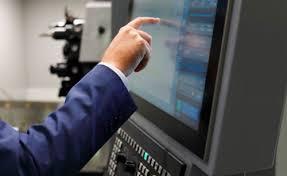Introduction:
Human Machine Interface (HMI) Market Size is expected to grow USD 11015 Million by 2032, at (CAGR) of 8.58% during the forecast period (2024 - 2032).
In the dynamic realm of technology, the convergence of human capabilities and machine efficiency has spurred a revolution in the way we interact with devices. This revolution is epitomized by the Human Machine Interface (HMI) market, a sector witnessing exponential growth and innovation. From touchscreens and voice recognition to gesture control and brain-computer interfaces, HMIs are redefining the user experience across industries.
Understanding Human Machine Interface
At its core, an HMI serves as the bridge between humans and machines, facilitating seamless communication and control. Traditionally, this interface has manifested as physical buttons, knobs, and switches. However, the advent of digital interfaces has transformed the landscape, introducing a plethora of intuitive and immersive interactions.
Market Dynamics and Growth Drivers
The HMI market is propelled by several key factors, including:
- Technological Advancements: Rapid progress in sensor technology, artificial intelligence, and machine learning has paved the way for more sophisticated and responsive HMIs.
- Industry 4.0 and IoT: The proliferation of smart devices and the adoption of Industry 4.0 principles have fueled demand for intelligent HMIs capable of orchestrating complex networks of interconnected machinery.
- User Experience Enhancement: Businesses across sectors recognize the importance of delivering superior user experiences to remain competitive. Intuitive and user-friendly HMIs play a pivotal role in achieving this objective.
- Safety and Efficiency: In sectors such as manufacturing, healthcare, and automotive, HMIs are instrumental in enhancing safety protocols, optimizing operations, and minimizing human error.
- Emerging Applications: As the boundaries of technology continue to expand, novel applications for HMIs are emerging in areas such as augmented reality (AR), virtual reality (VR), and mixed reality (MR).
Segmentation and Market Landscape
The HMI market can be segmented based on technology, product type, end-user industry, and geography. Some of the key players in this space include Siemens AG, Schneider Electric SE, Rockwell Automation Inc., Mitsubishi Electric Corporation, and General Electric Company, among others.
Get a free sample @ https://www.marketresearchfuture.com/sample_request/1092
Key Companies in the Human Machine Interface (HMI) Market include:
- Yokogawa Electric Corporation
- Rockwell Automation, Inc.
- ABB
- General Electric (GE)
- Mitsubishi Electric Corporation
- Schneider Electric SE
- Jabil Inc.
- Siemens AG
- Honeywell International Inc.
- Advantech Co., Ltd
- Emerson Electric Co
- Omron Corporation
- Eaton Corporation
- Beckhoff Automation
- EXOR International
- Other Players
Challenges and Opportunities
While the HMI market presents lucrative opportunities, it is not without its challenges. These include interoperability issues, security concerns, and the need for standardization across disparate platforms and devices. Additionally, the rapid pace of technological evolution necessitates continuous innovation and adaptation.
However, these challenges are accompanied by significant opportunities for growth and innovation. The integration of advanced technologies such as machine learning and natural language processing holds immense potential for enhancing HMI capabilities. Moreover, the advent of edge computing and 5G connectivity promises to unlock new possibilities for real-time responsiveness and seamless connectivity.
Future Outlook:
The future of the HMI market is characterized by innovation, convergence, and ubiquity. As technology becomes more pervasive and interconnected, HMIs will play an increasingly integral role in our daily lives. From smart homes and wearable devices to autonomous vehicles and industrial automation systems, the applications of HMI technology are virtually limitless.
Read more articles –
Magneto resistive RAM (MRAM) Market


